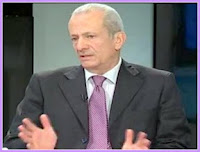 |
| "Safe corridor along the coastline from Homs to Damascus & Lebanon's Bekaa" |
Why
the hate for Homs?
An anonymous guest posed the question last February on an Internet
board, saying:
“I've been following news of the uprising in
Syria, and one thing that strikes me about it is that the Syrian government's
crackdown in Homs seems to be approaching genocidal levels -- it looks like
they're trying to wipe the city off the map. Why? Is there an ethnic or religious
minority that's concentrated in that city, and the Assad regime is using the
uprising as an excuse to do some ‘cleansing’?
“My
first thought was that maybe Homs is a Kurdish city, but a quick check of
Wikipedia shows that Homs is near Lebanon, which I'm pretty sure is the wrong
part of the country for it to have many Kurds. The Wiki page about Homs doesn't
give me any clues as to why this particular city should be targeted so aggressively.
Can anyone explain what's going on over there?”
The
explanation comes today from Lebanese political analyst Walid Choucair, writing
for the Saudi-owned pan-Arab daily al-Hayat
under the title “A safe
corridor for the regime.”
In
his opinion:
“The
Syrian regime will neither change its conduct nor amend its plan.
“The
regime has had, since the onset of the Syrian crisis, two objectives – one
maximal and another minimal.
 |
| Walid Choucair |
“The
maximal goal is to smother the uprising by force, irrespective of the cost. This
is proving to be an increasingly unattainable goal due to the extraordinary
resilience of part of the Syrian people and their resolve to bring down the
regime in spite of its vicious reprisals.
“The
minimal objective is to cleanse certain areas, even at the expense of letting the
rebels gain a foothold elsewhere. The focus of this cleansing campaign is Homs -- (Syria’s third-largest
city and home to about 1.5 million people) that was known as ‘Sun City’ in
ancient times -- and its surrounding villages. The intent is to create a safe
corridor for the regime and its backers through Homs between the Syrian coastline and
Damascus on one hand and the Lebanese borders on the edges of Lebanon’s
northern Bekaa, on the other.
“The
vicious drive by the regime and its backers to fulfill this minimal objective promotes
a demographic cleansing of this specific district by way of massacres (Baba Amr
and Houla, for example), executions, and the forced displacement to date of between
800,000 and 900,000 of its residents to other parts of Syria or out of the
country.
“The
regime has no qualms about razing buildings, homes and entire neighborhoods and
wiping them off the map as it is doing in Homs and its surroundings…”



